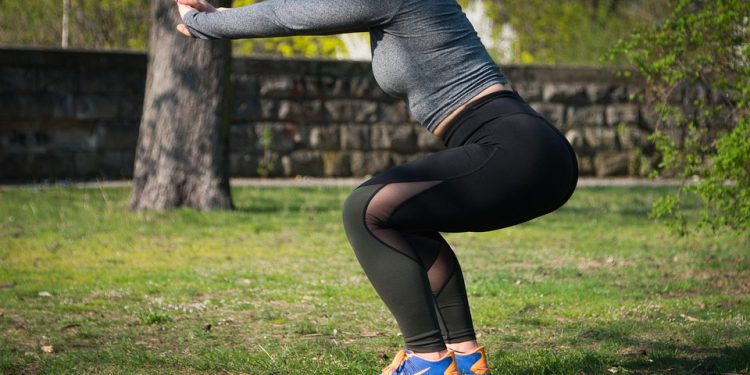Realistic Weight Loss Tips for Women: A Sustainable Approach
Weight loss can feel like an uphill battle, especially for women. Societal pressures, hormonal fluctuations, and unique body compositions often present challenges. However, achieving a healthier weight and unlocking your best self is absolutely possible with a realistic and sustainable approach. This article provides actionable strategies that focus on long-term lifestyle changes rather than quick fixes.
Subtitle: Effective Weight Loss Strategies for Women Over 30
Let’s delve into strategies tailored for women, considering the nuances of their bodies and lifestyles. Remember, consistency and self-compassion are key.
Understanding Your Body and Metabolism
Before embarking on any weight loss journey, it’s crucial to understand the basics of your body and metabolism. Several factors influence your metabolic rate, including age, muscle mass, genetics, and hormonal balance.
Metabolism and Age
As we age, our metabolism tends to slow down. This is primarily due to a decrease in muscle mass. Muscle tissue burns more calories at rest compared to fat tissue. To combat this, focus on building and maintaining muscle through strength training.
Hormonal Influences
Hormones play a significant role in weight management, especially for women. Conditions like PCOS (Polycystic Ovary Syndrome) and thyroid imbalances can impact metabolism and weight. Menopause also brings hormonal changes that can make weight loss more challenging. If you suspect a hormonal imbalance, consult your doctor for proper diagnosis and treatment.
Subtitle: Diet for Weight Loss in Women: A Comprehensive Guide
The Power of a Balanced Diet
Diet is a cornerstone of weight loss. A balanced diet rich in whole, unprocessed foods provides the nutrients your body needs to function optimally and supports a healthy weight.
Prioritize Whole Foods
Focus on incorporating whole, unprocessed foods into your diet. These include fruits, vegetables, lean proteins, whole grains, and healthy fats. These foods are naturally nutrient-dense and lower in calories than processed alternatives.
- Fruits and Vegetables: Aim for at least five servings a day. They’re packed with vitamins, minerals, and fiber, which helps you feel full and satisfied.
- Lean Proteins: Include sources like chicken breast, fish, beans, lentils, and tofu. Protein helps preserve muscle mass and boosts satiety.
- Whole Grains: Choose whole grains like brown rice, quinoa, and oats over refined grains like white bread and pasta. Whole grains are higher in fiber and have a lower glycemic index, which means they release energy more slowly and prevent blood sugar spikes.
- Healthy Fats: Don’t be afraid of healthy fats! Include sources like avocados, nuts, seeds, and olive oil. These fats are essential for hormone production and overall health.
Portion Control
Even healthy foods can lead to weight gain if consumed in excess. Pay attention to portion sizes to manage your calorie intake effectively. Using smaller plates and bowls can help with visual portion control. Measuring your food occasionally can also help you become more aware of appropriate serving sizes.
Limit Processed Foods, Sugar, and Unhealthy Fats
Processed foods, sugary drinks, and unhealthy fats are often high in calories and low in nutrients. Limiting these can significantly impact your weight loss efforts. Read food labels carefully and choose healthier alternatives whenever possible. For example, swap sugary sodas for water or unsweetened tea, and opt for baked or grilled foods over fried foods.
Subtitle: Exercises to Lose Weight Fast for Female
The Importance of Exercise
Exercise is crucial for both weight loss and overall health. It helps burn calories, build muscle, improve cardiovascular health, and boost mood.
Cardiovascular Exercise
Cardio activities like running, swimming, cycling, and dancing are excellent for burning calories. Aim for at least 150 minutes of moderate-intensity cardio or 75 minutes of vigorous-intensity cardio per week.
Examples of Moderate-Intensity Cardio:
- Brisk walking
- Cycling at a leisurely pace
- Swimming
- Dancing
Examples of Vigorous-Intensity Cardio:
- Running
- Swimming laps
- Aerobics
- Hiking uphill
Strength Training
Strength training is essential for building and maintaining muscle mass. Muscle tissue burns more calories at rest than fat tissue, which can help boost your metabolism. Aim for at least two strength training sessions per week, targeting all major muscle groups (legs, back, chest, shoulders, arms, and core).
Examples of Strength Training Exercises:
- Squats
- Lunges
- Push-ups
- Rows
- Plank
- Bicep curls
High-Intensity Interval Training (HIIT)
HIIT involves short bursts of intense exercise followed by brief recovery periods. It’s a highly effective way to burn calories and improve cardiovascular fitness in a short amount of time. HIIT workouts can be adapted to various exercises, such as running, cycling, or bodyweight exercises.
Subtitle: Women’s Weight Loss: Tips and Tricks for Over 40s
Lifestyle Adjustments for Sustainable Weight Loss
Beyond diet and exercise, several lifestyle adjustments can support your weight loss journey.
Prioritize Sleep
Adequate sleep is crucial for weight management. Lack of sleep can disrupt hormones that regulate appetite, leading to increased cravings and overeating. Aim for 7-9 hours of quality sleep per night.
Tips for Improving Sleep:
- Establish a regular sleep schedule.
- Create a relaxing bedtime routine.
- Avoid caffeine and alcohol before bed.
- Make sure your bedroom is dark, quiet, and cool.
Manage Stress
Chronic stress can lead to increased cortisol levels, which can promote fat storage, especially in the abdominal area. Find healthy ways to manage stress, such as yoga, meditation, spending time in nature, or engaging in hobbies you enjoy.
Stay Hydrated
Drinking plenty of water is essential for overall health and can also aid in weight loss. Water helps you feel full, boosts metabolism, and aids in digestion. Aim for at least 8 glasses of water per day.
Track Your Progress
Tracking your progress can help you stay motivated and accountable. Use a food journal, fitness tracker, or weight loss app to monitor your calorie intake, exercise, and weight. Don’t get discouraged by fluctuations; focus on the overall trend.
Seek Support
Having a support system can make a significant difference in your weight loss journey. Join a weight loss group, work with a registered dietitian or personal trainer, or find a friend or family member who can provide encouragement and accountability. Sharing your goals and challenges can make the process feel less daunting.
Be Patient and Kind to Yourself
Weight loss is a journey, not a destination. There will be ups and downs along the way. Be patient with yourself and celebrate your progress, no matter how small. Avoid comparing yourself to others and focus on your own goals. Remember, self-compassion is essential for long-term success.
Subtitle: Weight Loss for Women with Hypothyroidism
Addressing Specific Challenges
Some women face specific challenges that can make weight loss more difficult. It’s important to address these challenges with a tailored approach.
Weight Loss and PCOS
PCOS can lead to insulin resistance, which can contribute to weight gain and make it harder to lose weight. Focus on a low-glycemic index diet, regular exercise, and stress management. Consult with your doctor about medications that can help manage insulin resistance.
Weight Loss and Hypothyroidism
Hypothyroidism can slow down metabolism, leading to weight gain and difficulty losing weight. Work with your doctor to optimize your thyroid hormone levels. A balanced diet and regular exercise are also crucial for managing weight with hypothyroidism.
Weight Loss During Menopause
Menopause brings hormonal changes that can make weight loss more challenging. Focus on building muscle through strength training, eating a balanced diet, and managing stress. Consider hormone replacement therapy (HRT) if recommended by your doctor.
The Importance of Professional Guidance
While the tips outlined above can be incredibly helpful, seeking professional guidance can significantly enhance your weight loss journey. A registered dietitian can create a personalized meal plan tailored to your specific needs and goals. A certified personal trainer can design a workout program that’s safe and effective for you. Additionally, a doctor can assess your overall health and identify any underlying medical conditions that may be affecting your weight.
Conclusion
Achieving sustainable weight loss as a woman requires a holistic approach that encompasses diet, exercise, lifestyle adjustments, and self-compassion. By understanding your body, making informed choices, and seeking support when needed, you can unlock your best self and achieve a healthier, happier you. Remember, consistency is key, and every small step you take contributes to your overall success. Focus on creating healthy habits that you can maintain for the long term, and celebrate your progress along the way.
Frequently Asked Questions (FAQs)
Q: How quickly can I expect to lose weight?
A: Sustainable weight loss typically occurs at a rate of 1-2 pounds per week. Rapid weight loss can be unhealthy and unsustainable in the long run. Focus on making gradual changes to your diet and exercise habits.
Q: What’s the best diet for weight loss?
A: There’s no one-size-fits-all diet. A balanced diet that’s rich in whole, unprocessed foods and low in processed foods, sugar, and unhealthy fats is generally recommended. Consider consulting a registered dietitian for personalized guidance.
Q: Is it okay to indulge in occasional treats?
A: Absolutely! Depriving yourself of all your favorite foods can lead to cravings and binge eating. It’s okay to indulge in occasional treats in moderation as part of a balanced diet.
Q: What if I’m not seeing results despite my efforts?
A: Don’t get discouraged. Weight loss can be challenging, and there may be underlying factors affecting your progress. Consider consulting your doctor to rule out any medical conditions. It may also be helpful to re-evaluate your diet and exercise habits and make adjustments as needed.
Q: How can I stay motivated on my weight loss journey?
A: Find activities you enjoy, set realistic goals, track your progress, and seek support from friends, family, or a weight loss group. Remember to celebrate your successes along the way and be kind to yourself when you experience setbacks.
Q: What about supplements? Are they necessary for weight loss?
A: While some supplements may aid in weight loss, they are generally not necessary and should not be used as a substitute for a healthy diet and regular exercise. Always consult with your doctor before taking any supplements, as some may have side effects or interact with medications you are taking.
Q: How can I manage cravings effectively?
A: Identify your triggers for cravings. Are you stressed, bored, or emotionally eating? Find healthy ways to cope with these triggers. Drink plenty of water, eat regular meals and snacks, and choose nutrient-dense foods over processed snacks.
Q: What are some healthy snack options for weight loss?
A: Some good options include fruits, vegetables with hummus, a handful of nuts, Greek yogurt, or a hard-boiled egg. Choose snacks that are high in protein and fiber to help you feel full and satisfied.






